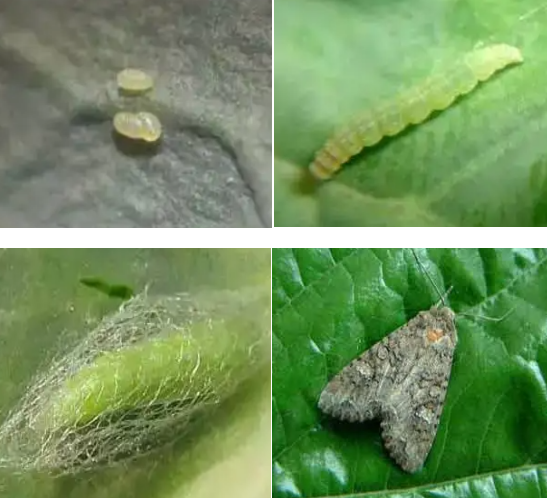When the vegetable diamondback moth occurs seriously, it often devours the vegetables to be riddled with holes, which directly affects the economic benefits of vegetable farmers. Today, the editor will bring you the identification and control methods of small vegetable insects, so as to minimize the economic loss of vegetable farmers.
Why it is difficult to control the diamondback moth:
1、The diamondback moth is small and can survive as long as there is a small amount of food, and it is easy to avoid predators.
2、The diamondback moth has strong ecological adaptability, can survive the short-term cold of minus 15 degrees in winter, and can also feed in an environment of -1.4 degrees. It can survive the scorching heat of 35 degrees or more in summer, and only the heavy rain in summer can kill them in large numbers.
3、The diamondback moth is highly resistant to pesticides and will soon develop a very high level of resistance to various chemical pesticides
4、The diamondback moth has a short life cycle, and when it feeds on cabbage, when the temperature is 28-30 degrees, it only takes 10 days to complete a generation at the fastest.
Repeatedly apply single regular insecticide may be able to kill targets at the beginning , but after also causing targets easy to develop resistance towards the insecticides .Therefore , using different effective products alternately can ensure the target insects not easy to occur resistance.
According to the experimental research results, the recommended pesticides that can be used alternately are:
1. Abamectin 0.5%+Chlorfenapyr 9.5%SC
Mixing 300-600ml with 450L water per hectare ,spraying
2. Diafenthiuron 500g/L SC
Mixing 600-900ml with 450L water per hectare ,spraying
3. Abamectin 0.2%+Petroieum oil 24% EC
Mixing 750-1000ml with 450L water per hectare ,spraying
4. Hexaflumuron 2%+Profenofos 30%EC
Mixing 750-1000ml with 450L water per hectare ,spraying
5. Abamectin 0.2%+Triflumuron 4%EC
Mixing 750-1000ml with 450L water per hectare ,spraying
Post time: Sep-26-2022




